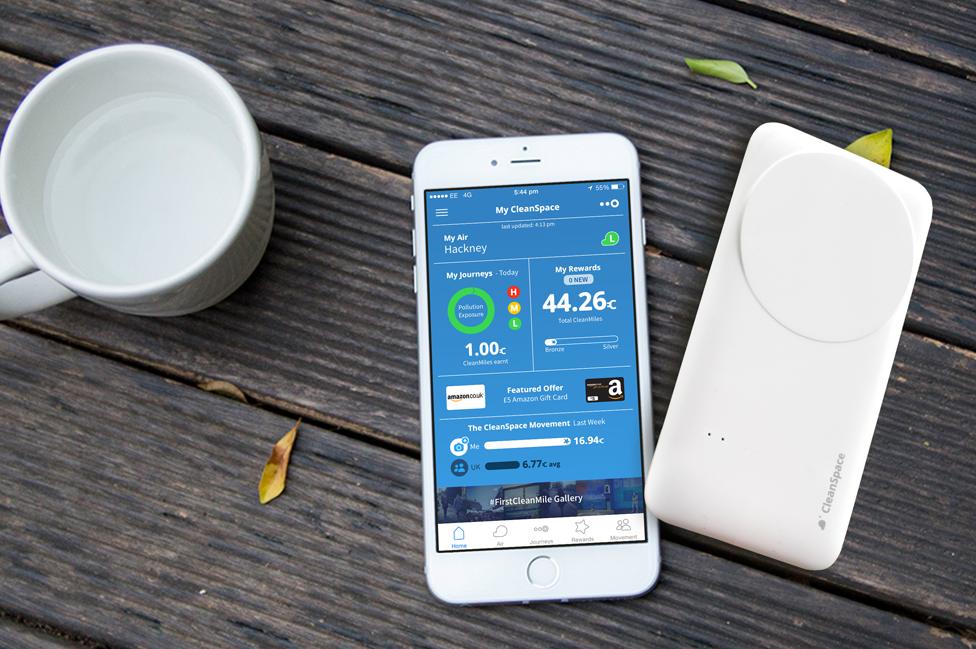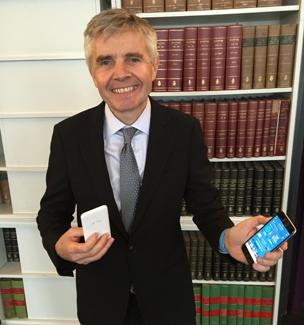Electricity from the air - Drayson's big idea
- Published
- comments

Free energy from the air. It sounds like a fantasy but that is what the entrepreneur and former science minister Lord Drayson has just unveiled at London's Royal Institution.
He claims that a technology called Freevolt can be the power source for the "internet of things", allowing low energy devices from wearables to sensors to operate without being plugged in.
The technology involves harvesting radio frequency energy from existing wireless and broadcast networks, from 4G to digital television. Lord Drayson says it's a world first: "It doesn't require any extra infrastructure, it doesn't require us to transmit any extra energy, it's recycling the energy which isn't being used at the moment."

The technology was demonstrated in the lecture theatre at the Royal Institution, where Michael Faraday worked on electromagnetism in the 19th Century. Lord Drayson first showed how much radio frequency energy was in the room, and then used his Freevolt system to power a loudspeaker.
He also demonstrated the first product to use the energy system, a personal air pollution monitor called the CleanSpace tag. It has been created by Drayson Technologies as part of a drive to improve air quality in cities and give individuals some insights into the extent of pollution. A battery in the device is continually recharged by a Freevolt energy harvester.
The technology, which has been patented, could now be used by organisations such as supermarkets which are preparing for the next phase of the internet, where billions of small cheap sensors are online providing data about their operations.
But Dean Bubley, a mobile technology analyst and founder of Disruptive Analysis, is cautious about the prospects for Freevolt. After watching the demonstration he tells me the idea of air-quality sensors and crowdsourced monitoring is "fascinating". But he says "it doesn't need Freevolt. The same thing could be achieved with a battery and low-power transmitter."
He says there are also questions to answer about the possible impact on the mobile networks, which own the spectrum that Freevolt would be harvesting, suggesting that that the "free" energy might actually be needed for communication.
I put it to Lord Drayson that the networks might demand a fee. He is confident that there is no legal basis for that and indeed is confident they would see his technology as a "really cool thing". He says it "closed the loop" on the internet of things and the industry would embrace it because it did not involve building more infrastructure.
Others have tried the same idea, but have struggled to produce energy with enough efficiency to make the technology commercially viable. Now this British company believes it has found a solution. If it is right, then Freevolt could turn into a very lucrative business.